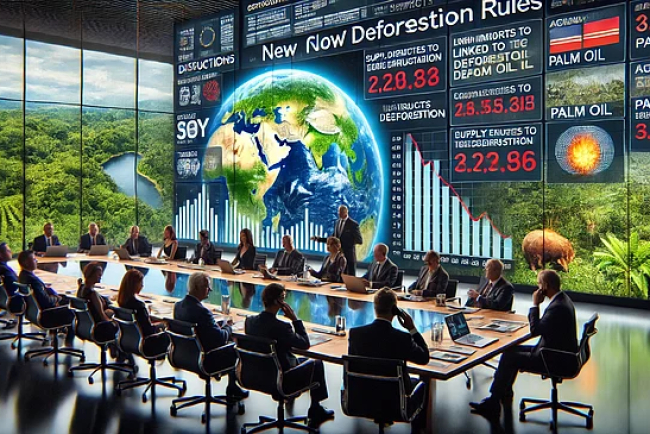Porsche’s Path to Net-Zero: Balancing Performance with Green Goals
Porsche is evolving as it navigates the transition to electric vehicles (EVs), balancing its legacy of high performance and luxury with modern sustainability goals. With the launch of the Taycan and the upcoming Macan EV, the company aims to electrify 80% of its sales by 2030. However, challenges remain in reconciling performance with environmental impact, particularly in the areas of material sourcing, carbon emissions, and supply chain transparency. Porsche has committed to achieving net-zero emissions by 2030 and is implementing sustainable practices, including the use of renewable energy in production and ethical sourcing of materials. As the automotive industry continues to prioritize sustainability, Porsche’s strategy will be key in determining how luxury and environmental responsibility can coexist in the EV era.Porsche’s EV evolution raises questions about sustainability, material sourcing, and emissions. Can high performance align with ESG goals?

Can Luxury and Sustainability Coexist? Porsche’s ESG Evolution in the EV Era
As the global automotive industry shifts toward electrification, Porsche, a brand long associated with high performance and luxury, is navigating the challenge of integrating sustainability into its operations. With the launch of electric vehicles like the Taycan and the upcoming Macan EV, the German automaker is attempting to balance its performance legacy with modern environmental expectations.
Transition to Electric Mobility
Porsche’s move into the electric vehicle (EV) market is not new, but its ambitions have intensified in recent years. The Taycan, launched in 2019, marked the company’s first all-electric sports car, followed by ongoing development of the Macan EV, set to be released in 2024. These efforts are part of Porsche’s larger goal to ensure that 80% of its sales are electric models by 2030.
However, while EVs are often promoted as environmentally friendly alternatives to internal combustion engines, the performance-focused nature of Porsche’s electric lineup raises ongoing questions. Producing high-performance EVs requires significant energy use, from battery production to vehicle testing, which has its own environmental footprint.
Material Sourcing and Supply Chain Transparency
A key area of concern in Porsche’s sustainability roadmap involves the sourcing of raw materials. High-end vehicles often rely on luxury interiors using leather, rare woods, and aluminum, which are not always sustainably sourced. In response, Porsche has committed to improving supply chain transparency and ethical sourcing, especially regarding lithium, cobalt, and nickel—critical materials for EV batteries.
Porsche has adopted sustainability standards under the Volkswagen Group’s broader ESG guidelines. This includes greater traceability in material procurement and closer scrutiny of suppliers to meet environmental and human rights standards. The company also supports initiatives to recycle battery components and reduce reliance on virgin raw materials.
Net-Zero Goals and Climate Reporting
Porsche has pledged to become carbon neutral across its value chain by 2030. Part of this commitment includes electrifying its vehicle lineup, improving manufacturing efficiency, and increasing the use of renewable energy in its facilities. The Zuffenhausen plant, where the Taycan is produced, has already transitioned to carbon-neutral operations through renewable power and biogas systems.
In its latest sustainability report, Porsche disclosed its emissions data in alignment with the GHG Protocol, including Scope 1, Scope 2, and parts of Scope 3 emissions. While reductions in operational emissions have been achieved, tackling Scope 3 emissions—those linked to suppliers and product use—remains a major hurdle.
Balancing Performance and Environmental Impact
One of the core challenges for Porsche is maintaining its performance identity while transitioning to a more sustainable model. Electric vehicles like the Taycan offer fast acceleration and responsive handling, but their environmental impact depends on several variables, including electricity source, battery lifecycle, and vehicle longevity.
Critics argue that producing ultra-high-performance EVs with large batteries may offset some of the climate benefits due to increased resource use and energy consumption. Porsche’s strategy includes exploring synthetic e-fuels for its legacy vehicles to reduce emissions from its non-electric models, a path that has drawn mixed reactions from environmental groups.
Brand Evolution in the ESG Era
Porsche’s shift reflects a broader industry trend where legacy automakers are reshaping their identity in the face of climate challenges and evolving consumer expectations. While the brand’s core customer base values performance and design, sustainability is becoming a central factor in purchase decisions, especially among younger buyers.
The company has also increased investment in ESG (Environmental, Social, and Governance) reporting and green technologies, aiming to align with EU taxonomy and other international frameworks. Yet, the effectiveness of these efforts will depend on long-term execution and external verification.
Conclusion
Porsche’s evolution into a more sustainable luxury brand is ongoing. The success of its electric models, material sourcing reforms, and climate initiatives will shape its ability to maintain brand integrity while adapting to environmental demands. As the automotive industry undergoes a fundamental transformation, Porsche’s balancing act between performance and sustainability will remain a focal point in the EV era.
What's Your Reaction?

















